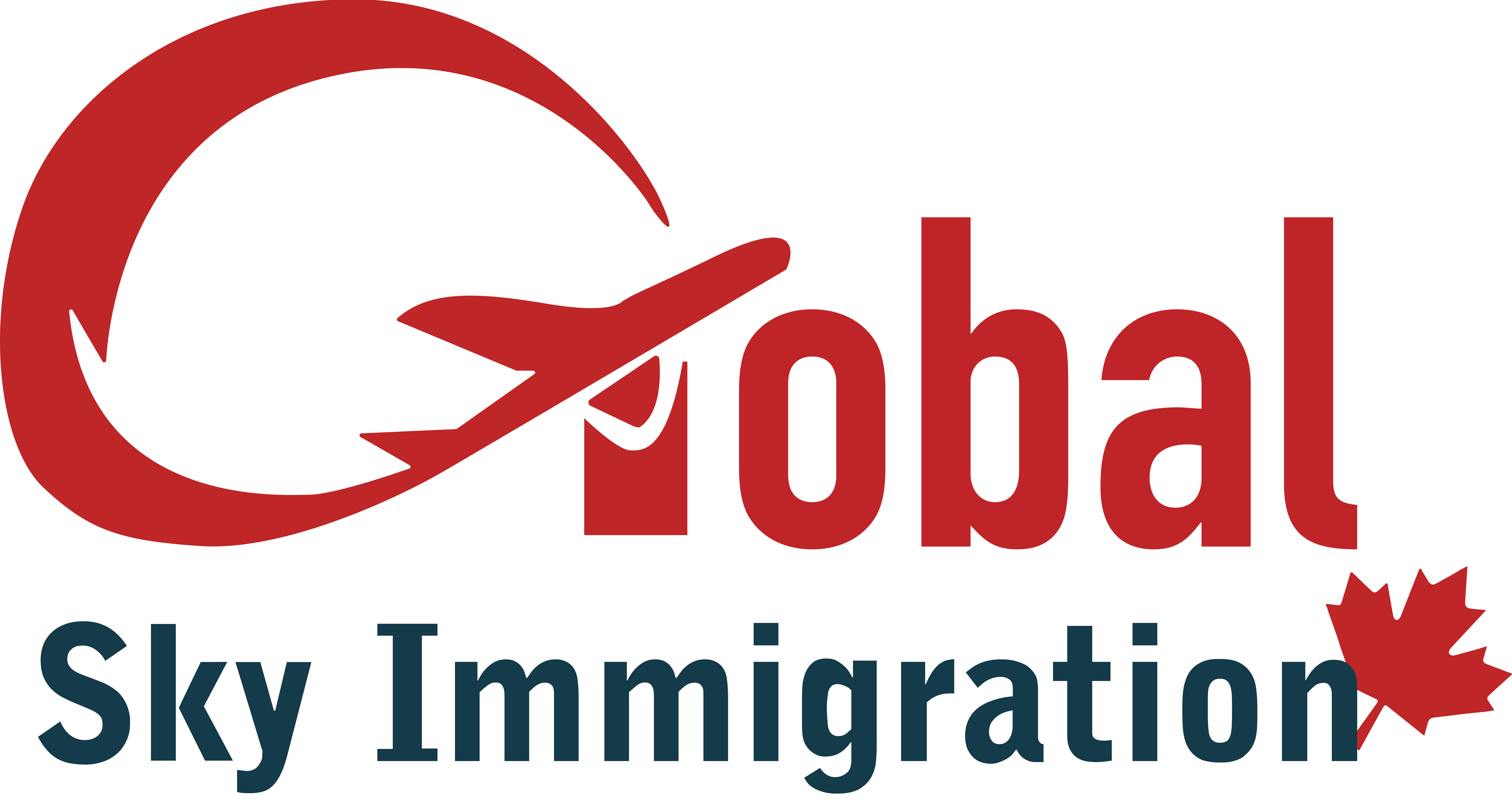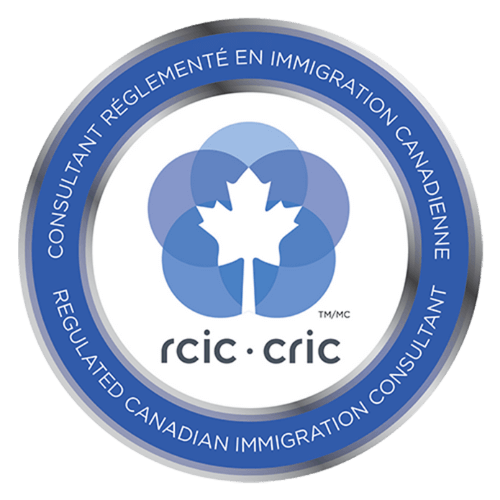For graduates with expiring PGWPs or those who will soon be ineligible for post-graduation work permits, there are alternative pathways available to maintain legal work status in Canada. Recent and upcoming graduates can explore various options to continue working legally in the country.
International graduates who have recently completed their studies can explore a variety of work permit options, such as:
- Work permits under free-trade agreements
- International Experience Canada (IEC) work permits
- Temporary Foreign Worker Program (TFWP) work permits
- Atlantic Immigration Program (AIP) work permits
- Provincial Nominee Program (PNP) work permits for nominees or candidates
- Spousal open work permits for post-secondary students
- Spousal open work permits through family sponsorship
Refer to the table below for a high-level summary of these available options.
*Work Permit Type & Eligibility Criteria Overview
Free-Trade Agreement-Based Work Permits
- Applicants must be foreign nationals from countries with active free trade agreements with Canada.
- Specific eligibility requirements vary based on each agreement.
International Experience Canada (IEC) Work Permits
- Open to foreign nationals from countries with bilateral youth mobility agreements with Canada.
- Generally, applicants must be 35 years old or younger (30 for some countries).
Temporary Foreign Worker Program (TFWP) Work Permits
- Requires a job offer from an employer who has obtained a positive or neutral Labour Market Impact Assessment (LMIA).
- Employers must meet additional criteria based on the specific stream of the program.
Atlantic Immigration Program (AIP) Work Permits
- Requires a valid job offer, and the employer must sponsor the applicant through the AIP.
- The job offer must receive provincial endorsement.
Provincial Nominee Program (PNP) Work Permits
- Applicants must be nominated or applying under a PNP stream.
- Eligibility criteria vary depending on the specific province’s program.
Spousal Open Work Permits for Post-Secondary Students
- Available if the applicant’s spouse is enrolled in an eligible program at a recognized Canadian post-secondary institution.
Spousal Open Work Permits for Family Sponsorship
- Applicants must be sponsored by a spouse who is a Canadian citizen or permanent resident.
- A permanent residence application must already be submitted.
* After completing your studies, can you start working once you’ve applied for a work permit?
Once you’ve completed your study program, you can begin working full-time right away, as long as you meet these requirements:
- You were permitted to work off-campus during your studies.
- You submitted your work permit application before your study permit expired.
- You are awaiting a decision on your work permit application.
To apply for a work permit from within Canada, you must maintain valid status in the country.
* Work permits based on free-trade agreements
If you’re a foreign national from a country with which Canada has a free trade agreement, you may want to explore whether you’re eligible for a work permit under one of these agreements.
Canada has several free trade agreements that offer work permits to qualified foreign nationals through the International Mobility Program (IMP).
For example, the Canada-US-Mexico Agreement (CUSMA), which replaced the North American Free Trade Agreement (NAFTA), is one such agreement that provides work permits.
These agreements create opportunities for foreign nationals based on their citizenship in countries with a free trade agreement with Canada. It’s worth checking if you qualify for a work permit through one of these agreements.
* Canada’s International Experience Program (IEC)
For some foreign nationals, International Experience Canada (IEC) work permits could offer an alternative option.
To qualify for an IEC work permit, you must:
- Be a citizen of a country that has a bilateral youth mobility agreement with Canada.
- Be under the age limit for “youth” (either 35 or 30, depending on your country).
There are three types of IEC work permits, each with specific eligibility criteria:
- Working Holiday
- Financial resources
- Health insurance
- Employer-specific or open: Open
The Working Holiday permit has fewer requirements and gives you the flexibility to work for any employer in Canada.
- Young Professionals
- Financial resources
- Health insurance
- Job offer
- Employer-specific or open: Employer-specific
To qualify for the Young Professionals permit, you must have a job offer that contributes to your professional development. Typically, the job should be in National Occupation Classification (NOC) TEER 0, 1, 2, or 3, although some NOC 4 positions may be eligible if they align with your field of study.
- International Co-op (Internship)
- Financial resources
- Health insurance
- Work placement
- Employer-specific or open: Employer-specific
The International Co-op permit requires you to be a post-secondary student with a work placement that is a mandatory part of your study program.
Your nationality will impact:
- The type(s) of IEC work permit for which you are eligible
- Other conditions, such as the length of the permit and participation limits
While the Working Holiday permit is highly popular, demand often exceeds available permits. Applicants are chosen via a lottery system, and your chances of success depend on the pool size and the number of applicants from your country, which you can check on the IRCC website.
On the other hand, for the Young Professionals and International Co-op work permits, there are generally more available permits than applicants, making success highly likely.
If you’re eligible for either of the employer-specific IEC work permits, applying for those may increase your chances of success compared to the Working Holiday permit.
* The Temporary Foreign Worker Program (TFWP)
If you’re ineligible for an IEC or FTA-based work permit, the Temporary Foreign Worker Program (TFWP) could be an option.
TFWP work permits are employer-specific, allowing you to work only for the designated employer.
To apply, your employer must support your application and obtain a Labour Market Impact Assessment (LMIA) from Employment and Social Development Canada (ESDC). The LMIA must show that hiring a foreign worker will not negatively affect the Canadian job market.
Employers may need to advertise the job and meet additional requirements, depending on the TFWP stream. The Global Talent Stream, however, allows faster processing and skips the job advertising requirement for certain employers.
As of September 26, 2024, ESDC will halt LMIA processing for low-wage jobs in census metropolitan areas with an unemployment rate above 6%.
* The Atlantic Immigration Program (AIP)
The Atlantic Immigration Program (AIP) provides a pathway to permanent residence (PR) and work permits for eligible candidates.
To be eligible, you need a job offer from a designated employer in one of Canada’s Atlantic province and must meet requirements in:
- Language proficiency
- Education
- Work experience
- Settlement funds
Your employer must also have your job offer endorsed by the province where you plan to settle.
After applying for PR through the AIP, you can apply for an employer-specific work permit valid for up to 2 years.
Canada’s Atlantic province are:
- New Brunswick
- Newfoundland and Labrador
- Nova Scotia
- Prince Edward Island (PEI)
* Provincial Nominee Program (PNP) work permits for nominees or candidates
Certain Provincial Nominee Programs (PNPs) can enable you to obtain a work permit.
For example, the British Columbia Provincial Nominee Program (BC PNP) provides a work permit support letter to its nominees.
On August 11, 2024, the federal government introduced a temporary public policy that allows provinces to issue work permits to PNP candidates. Currently, the following provinces and territories have implemented this program:
- Alberta
- Manitoba
- Yukon
To be eligible for this work permit, you must receive a support letter from the province or territory, in addition to meeting various other requirements. This temporary public policy is set to expire on December 31, 2024, but may be revoked or extended by the government at any time.
* Open work permit for spouses – post-secondary studies
If your spouse is on a study permit and enrolled as a student at a Canadian post-secondary institution, you may be eligible for a spousal open work permit. Your spouse must be enrolled in one of the following:
- A master’s or PhD program lasting at least 16 months, or
- A professional degree program in an eligible field of study.
Eligible fields of study for professional degrees include:
- Doctor of Dental Surgery (DDS, DMD)
- Bachelor of Law or Juris Doctor (LLB, JD, BCL)
- Doctor of Medicine (MD)
- Doctor of Optometry (OD)
- Pharmacy (Pharm D, BS, BSc, B Pharm)
- Doctor of Veterinary Medicine (DVM)
- Bachelor of Science in Nursing (BSc N, BSN)
- Bachelor of Nursing Science (BNS)
- Bachelor of Nursing (BN)
- Bachelor of Education (B. Ed)
- Bachelor of Engineering (BEng, BE, BSc )
To apply, you’ll need to submit proof of your spouse’s student status and evidence of your relationship.
This open work permit is typically valid for the same duration as your spouse’s study permit.
* Open work permit for spouses – family sponsorship
If your spouse is a Canadian citizen or permanent resident and has sponsored you for permanent residence, you’re eligible to apply for an open work permit.
To qualify, you must have already submitted your permanent residence application and be residing in Canada with your sponsor, holding valid temporary resident status.
* What exactly is the Post-Graduation Work Permit (PGWP)?
The Post-Graduation Work Permit (PGWP) is an open work permit offered to foreign nationals who have graduated from post-secondary institutions in Canada.
If you’ve completed an eligible program at a designated learning institution (DLI), you may qualify for a PGWP, with validity ranging up to three years, based on the duration of your program.
* Who is no longer eligible to apply for PGWPs?
You may have initially enrolled in a program at a Canadian post-secondary institution with the expectation that completing your studies would make you eligible for a PGWP, but this may no longer be the case.
Starting November 1, 2024, the Canadian federal government has updated the eligibility criteria for the PGWP.
For applications submitted before November 1, 2024, almost all full-time post-secondary programs at designated learning institutions (DLIs) lasting more than 8 months would qualify graduates for a PGWP.*
However, for applications after November 1, 2024, if your program was a college or university vocational program, you will only be eligible for a PGWP if your field of study is aligned with Canada’s labour market needs.
Bachelor’s, master’s, and PhD programs at universities have no such restrictions regarding the field of study for PGWP eligibility.
*Language study programs (such as studying English or French as a second language) are excluded from eligibility.





